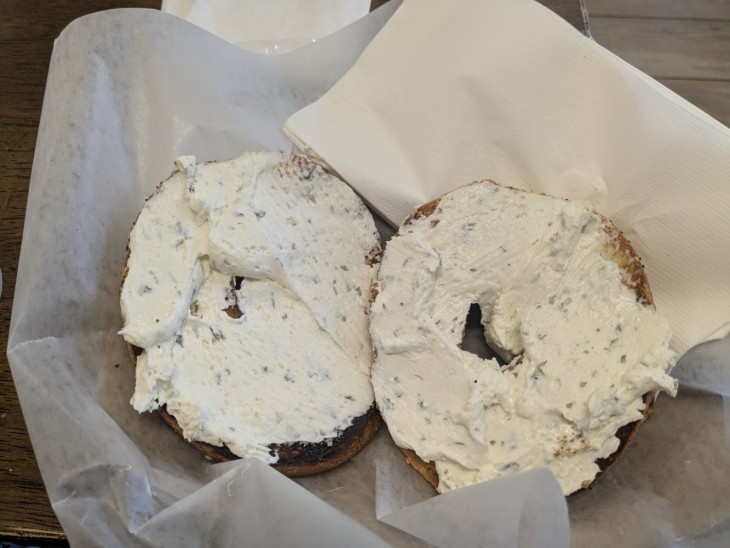Deadlines at work, vacations to plan, gatherings to attend. Summer is a fun and happy time, but it can also be a very stressful time as we tick off all the things we have to do and places we have to be.
While the connection between stress and sickness has been accepted and even postulated for years, scientists are finally able to explain the biological process that links emotional stressors to illnesses like the common cold or flu.
Stress: What The Research Says
Much stress-related research has focused on the stress hormone cortisol, which is released by the adrenal glands when we feel threatened or anxious. Cortisol is used by the body to free up energy so that we can aptly respond to threats – it’s a very primal response that we’ve perfected over thousands of years as human beings.
Unfortunately, these days we no longer face the same level of potential danger in “flight or fight” situations that we once did; there aren’t many tigers chasing us!
Where we once responded by using up all of this freed energy to run away from a threat, we now feel the “flight or fight” stress come out in response to something like a looming deadline, and the energy our body frees up to flee now mostly stagnates.
In terms of your health, the important thing to understand is that freeing up all that energy is decreasing the body’s focus on the immune system.
The authors of a stress-related study, conducted at Carnegie Mellon University, say that it is not the level of cortisol that is released that will weaken us, but rather our immune system’s sensitivity to it.
So the more stressed we are, the less energy we will have to support our immune system; at the same time, we have potentially strong reactions to cortisol, allowing inflammatory symptoms, like those that cause the common cold, to go wild.
Stress doesn’t just weaken your immune system. Other stress-related symptoms include nervous tension, restless sleep, weakened memory, lack of focus, and health complications from adrenal exhaustion.
Generally speaking, stress speeds up aging. For brain health and overall peace of mind, it is crucial to have a stress release plan.
No matter how sensitive we are to cortisol, we need to focus on the root of the problem: the stress that is causing our immune systems to weaken.
The wisdom of Eastern sages reminds us that the body and mind are intrinsically linked, and any efforts we make to bring health to the body must also be made in the emotional realm of the mind.
Top Three Ways To De-Stress
I know how hard it is to find sustained relaxation and emotional peace in our busy lives!
But trust me, it’s possible to live a tranquil life of equanimity; it just takes a little practice and discipline. Here are my top three tips to live a stress-free and emotionally balanced life.
1. Make Time To Meditate
Practicing meditation daily is the best way to reduce your cortisol output and find stillness in your life.
When we meditate, we rest our bodies and our minds, and we regain the strength and balance needed to cope with everyday stresses.
If you’ve never meditated before, don’t be intimidated; start with five minutes each day and work your way up to 15, 20, or even 30 minutes daily.
Stress release meditation: Sit comfortably in a quiet place, in a chair or on the floor. Breathe consciously, relax, and with each exhale focus on relaxing each area of your body in sequence, starting from the top of your head and moving all the way down to your toes.
Sometimes it is helpful to start with a guided meditation, such as my audio Meditation for Stress Release.
2. Take Some “You” Time
One way we over-stress ourselves is by creating the illusion that we are too busy to do anything we enjoy, like writing in a journal, going for walks outside, or just reading a fun book.
Make sure you set aside time to relax or work on a hobby at least one day every week.
Lightening up your schedule a little will help you find balance in your busy life, along with feeling accomplished and learning how to find new outlets that help you stay happy and calm.
3. Ease Your Nerves With Calming Teas
One of my favorite daily routines is to sit down at night with a calming cup of tea and write about my day.
I always make sure I create a plan for anything I didn’t finish in the day that has passed so I can sleep well and without worry.
My favorite calming herbs for this nighttime tea are schizandra berry, chamomile, valerian, and lemon balm.
To make a tea from schizandra berry, prepare one teaspoon of the dried berries, and drink once or twice daily.
Dr. Mao Shing Ni, best known as Dr. Mao is a bestselling author, doctor of Oriental Medicine, and board certified anti-aging expert. He has recently appeared on “The Ricki Lake Show,” “Dr. Oz,” and contributes to Yahoo Health and The Huffington Post. Dr. Mao practices acupuncture, nutrition, and Chinese medicine with his associates at the Tao of Wellness in Santa Monica, Newport Beach, and Pasadena. Dr. Mao and his brother, Dr. Daoshing Ni, founded the Tao of Wellness more than 25 years ago in addition to founding Yo San University in Marina del Rey. To make an appointment for evaluation and treatment call 310.917.2200 or you can email Dr. Mao at contact@taoofwellness.com. To subscribe to his tip-filled newsletter, visit www.taoofwellness.com.


























